On May 22, 2024, AABANY members met with the staff of New York Senate and Congressional representatives in Washinton, D.C. at this year’s NAPABA Lobby Day. Each year, members of the National Asian Pacific American Bar Association (NAPABA) travel from across the United States to Washington D.C. and advocate on critical issues facing the Asian American, Native Hawaiian, and Pacific Islander (AANHPI) community.
NAPABA and local bar association members discussed a number of issues with Congressional offices including legislation to address Anti-Asian Hate, Civil Rights, Immigration, and to support the confirmation of AANHPI judicial and executive nominees.
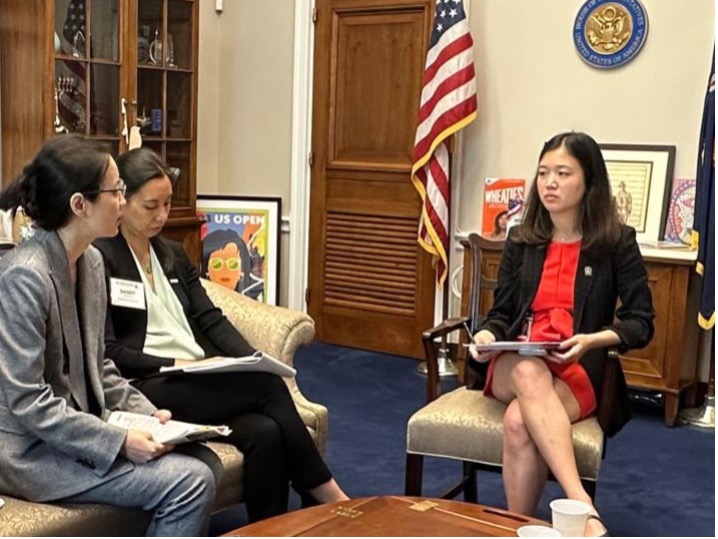
Wen Xue, Associate at Greenberg Traurig, LLP, discussed state bills barring Chinese nationals from owning real property and a federal bill to preempt those laws. She shared, “Lobby Day is a great opportunity to meet and connect with people. I enjoyed the opportunity to see my fellow NAPABA colleagues in action, hear their words, and be inspired.”
Sandy Chiu, intellectual property attorney at Greenberg Traurig, LLP, stated, “Lobby Day continues to inspire and reengage me in the civic process, reminding me of our power as a collective NAPABA voice in shaping policy.”
Michelle Lee, Counsel for Stand with Asian Americans which advocates against workplace discrimination, discussed legislation to ensure AANHPI history is taught as part of American history. She stated, “As a first-time attendee of Lobby Day, I experienced a sense of empowerment and relevance as we advocated on behalf of our AANHPI community directly with our Senators’ and Representatives’ offices. Every lawyer should take advantage of this privilege especially when NAPABA makes the experience so seamless and collaborative.”
Nandar Win Kerr, Human Corporate Responsibility and Sustainability Consultant and Co-Chair of AABANY’s Professional Development Committee, stated, “For the past three years, I have participated in NAPABA Lobby Day, transitioning from grassroots activism to high-level policy advocacy, a journey that seemed intimidating at first…. Engaging in NAPABA Lobby Day has enriched my sense of community and empowered me to contribute to collective advocacy efforts. Together, we strive to foster a peaceful, equitable, inclusive, and sustainable democratic society where everyone feels they belong.”
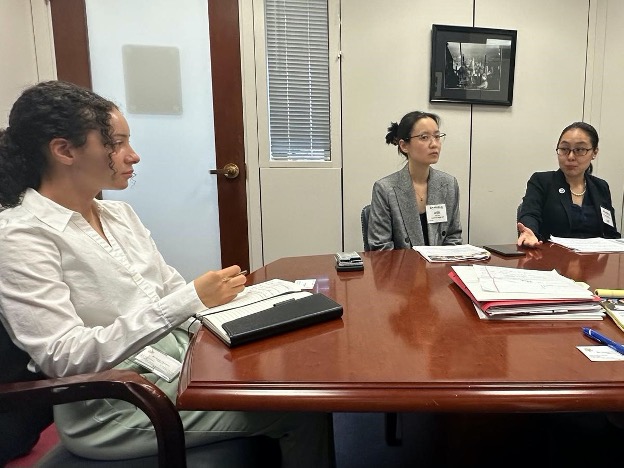
Rachel Lee, Associate at A&O Shearman, stated, “Lobby Day 2024 was another incredibly rewarding experience. Marching through the hallways of the House and Senate buildings with a team of like-minded AANHPI attorneys was a reminder that our democratic process requires hard work and advocacy and gave me hope that as a team we can serve as a voice on issues important to our often-forgotten community. Whether it’s an important election year or not, with or without prior lobbying experience, I strongly encourage our members to take part in this amazing program.”
NAPABA is the largest AANHPI grassroots membership association, representing the interests of over 80,000 lawyers, judges, law students and other legal professionals around the country. Approximately 90 local bar associations are affiliated with NAPABA.
Anna Mercado Clark, Partner at Phillips Lytle LLP, currently serves as President of NAPABA. She stated, “Lobby Day is the premier advocacy event for NAPABA and one of the most visible ways that we celebrate Asian American, Native Hawaiian, and Pacific Islander Heritage Month. We are proud to have gathered 150 members for a Congressional reception and 50 meetings with legislators from both sides of the aisle. It is so powerful to see so many AANHPIs roaming the halls of Congress. It sends the message that we are here, we matter, and we will not tire of pursuing issues of importance to our communities. Thank you, AABANY, for joining NAPABA and all you are doing to advocate for our communities and strengthen democracy. This work is more important now than ever.”
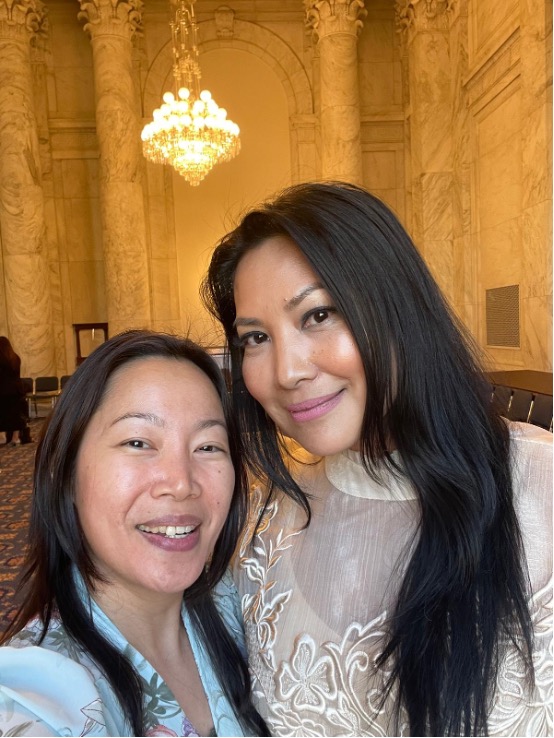
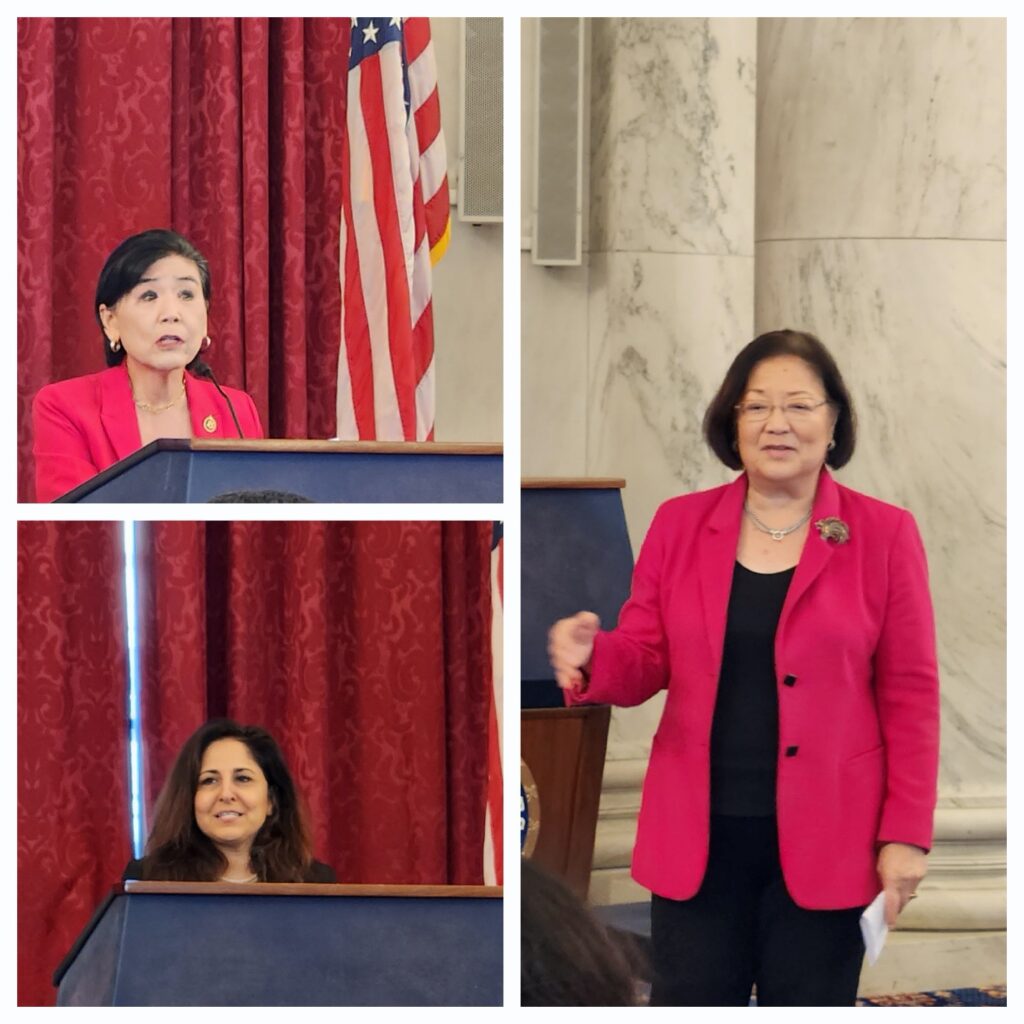
NAPABA Lobby Day coincides with the annual Asian American, Native Hawaiian, and Pacific Islander Heritage Month Congressional Reception. Several AANHPI congressional and administration officials spoke including Congresswoman Judy Chu (CA), Senator Mazie Hirono (HI), and White House Director of the Domestic Policy Counsel Neera Tanden.
Thanks to all the AABANY members who participated in Lobby Day this year, especially Vishal Chander, Issues Committee Co-Chair and Board Director, who submitted this report.

